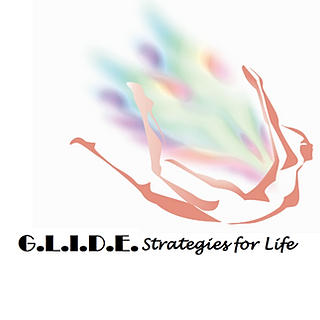Embracing the Wisdom of Emotions: Insights from Emotionally Focused Therapy
- Stephanie V. Straeter
- Apr 12, 2024
- 3 min read
Emotions are powerful, complex, and often misunderstood aspects of human experience. In our fast-paced, logic-driven world, we often view emotions as irrational or disruptive forces to be suppressed or ignored. However, Emotionally Focused Therapy (EFT) recognizes emotions as valuable guides and sources of wisdom. By learning to tune into, accept, and learn from our emotions, we can unlock a deeper understanding of ourselves and our relationships.
The Function of Emotions:
From an EFT standpoint, emotions serve a crucial adaptive function. They are rapid, automatic appraisals of situations that guide us to take action to meet our basic needs for connection, security, and well-being. For instance, fear alerts us to potential threats, sadness signals a need for comfort and support, and joy reinforces behaviors that promote thriving. Each core emotion has a unique action tendency and interpersonal message. By understanding the language of our emotions, we gain a clearer sense of our needs and how to effectively communicate them to others.
The Problem with Emotional Suppression:
In attempting to avoid painful feelings, we often resort to emotional suppression. We may numb ourselves through addictive behaviors, distract ourselves with busyness, or intellectualize our problems. While these strategies provide temporary relief, they disconnect us from our authentic experience and needs. Suppressed emotions do not disappear; they intensify and manifest in other ways, such as anxiety, depression, and relational conflict. EFT teaches us that the path to healing and growth lies not in avoiding emotions, but in learning to mindfully attune to them.
Embracing Emotional Experience:
EFT encourages a stance of curiosity, acceptance, and compassion towards emotions. Instead of judging feelings as "good" or "bad," we aim to acknowledge and allow them, trusting that they contain valuable information. This process involves slowing down, tuning into bodily felt senses, and describing emotions in a nuanced way. For example, rather than simply labeling an experience as "anger," we might notice sensations of heat, tension, and an impulse to assert boundaries, suggesting a need to protect oneself. By differentiating and putting language to our felt experience, we deepen our emotional intelligence.
Emotions as a Guide:
As we practice embracing emotions, we discover that they are not enemies to be conquered, but friends to be consulted. Even painful emotions have something to teach us. Anxiety may signal that we are ignoring an important need or engaging in negative self-talk. Guilt may highlight where we have acted out of alignment with our values. Loneliness may point to a need for greater vulnerability and intimacy in our relationships. By treating emotions as valuable messengers and decoding their signals, we gain self-understanding and can take adaptive action to meet our needs.
Emotions and Relationships:
Emotions are deeply intertwined with our relational bonds. In EFT for couples, therapists help partners identify and share their vulnerable primary emotions, fostering deeper empathy and connection. By learning to express our emotions in an open, non-blaming way and responding to others with compassion, we create a secure base from which to weather life's challenges. When we feel emotionally safe and understood by others, we gain the confidence to explore, take risks, and grow.
In conclusion, emotions are not weaknesses or hindrances, but powerful sources of information and connection. By learning to embrace and listen to our emotions, as EFT advocates, we tap into a wellspring of self-understanding, resilience, and relational harmony. The next time you experience a strong emotion, try meeting it with openness and curiosity. Ask yourself, "What is this feeling trying to tell me? What need is it pointing to?" By honoring the wisdom of your emotions, you open the door to a more authentic, fulfilling way of being.

















































Comments